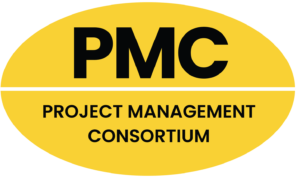Residential and commercial water damage restoration share similarities in many aspects but have critical differences due to variations in property size, usage, and structural considerations. Understanding these distinctions is crucial for effective restoration in each setting. Here are the key differences between residential and commercial water damage restoration:
1. Property Size:
- Residential: Residential properties are typically smaller in scale, with fewer rooms and less square footage. This can make water damage restoration more straightforward regarding logistics and space management.
- Commercial: Commercial properties, such as office buildings, warehouses, or retail spaces, are often larger and more complex. Restoration efforts may need to cover a wide area, requiring more extensive equipment and personnel.
2. Structural Complexity:
- Residential: Residential structures are usually less complex than commercial buildings regarding architectural features and systems. Restoration efforts focus on standard residential components like drywall, flooring, and basic electrical and plumbing systems.
- Commercial: Commercial buildings can have more intricate structures, including specialized HVAC systems, industrial equipment, and complex plumbing and electrical systems. Restoration in these settings often demands a deeper understanding of commercial infrastructure.
3. Usage and Occupancy:
- Residential: Residential properties are primarily used as living spaces. Restoration typically involves addressing the needs of the homeowners and their families, focusing on safety and comfort.
- Commercial: Commercial properties serve various purposes, such as offices, manufacturing, retail, or healthcare. Restoration must consider the specific needs of the business or organization, including maintaining operations or minimizing downtime.
4. Regulatory Compliance:
- Residential: Restoration in residential settings typically needs to comply with local building codes and safety regulations, but these requirements are generally less stringent than those for commercial properties.
- Commercial: Commercial buildings often face more rigorous regulatory standards and safety codes, particularly in industries like healthcare and manufacturing. Compliance with these regulations is crucial during restoration.
5. Business Interruption:
- Residential: While inconvenience concerns homeowners during restoration, it generally involves a different business interruption than commercial properties.
- Commercial: Downtime in commercial settings can result in significant financial losses. Restoration efforts must be efficient to minimize disruption to business operations.
6. Equipment and Resources:
- Residential: Residential restoration projects typically require smaller-scale equipment and resources, making them more manageable for local contractors.
- Commercial: Commercial restoration often involves heavy-duty equipment and specialized resources, which may require collaboration with larger restoration companies that handle complex commercial projects.
7. Documentation and Reporting:
- Residential: Documentation for residential projects tends to be simpler and less formal, focusing on ensuring homeowners are informed and satisfied with the restoration process.
- Commercial: Commercial restoration often involves detailed documentation, including compliance reports, safety records, and communication with multiple stakeholders, such as property owners, business owners, and insurers.
Understanding these fundamental differences between residential and commercial water damage restoration is essential for restoration professionals to tailor their approach to each setting effectively. Whether it’s a home or a commercial property, prompt and skillful restoration is crucial to minimizing damage, ensuring safety, and getting occupants or businesses back to normal as quickly as possible.
FAQs (Frequently Asked Questions) about Water Damage Restoration:
1. What should I do immediately after discovering water damage in my home or business?
- Answer: The first step is to ensure safety by turning off the power to affected areas and addressing any immediate hazards. Then, contact a reputable water damage restoration company like DisasterRestorationExperts.com to assess the damage and begin the restoration process promptly.
2. How long does the water damage restoration process typically take?
- Answer: The duration of the restoration process depends on several factors, including the extent of the damage, the type of materials affected, and the size of the property. Minor water damage may take a few days to restore, while extensive damage in larger commercial properties can take several weeks.
3. Is it necessary to hire a professional water damage restoration company, or can I attempt the cleanup myself?
- Answer: While minor water damage may be manageable for homeowners, professional restoration experts have the experience, equipment, and knowledge to ensure thorough restoration and mitigate potential long-term issues like mold growth. It’s advisable to consult a restoration company like DisasterRestorationExperts.com, especially for significant damage.
4. Are there differences in the restoration process for residential and commercial properties?
- Answer: Yes, there are differences in the restoration process due to the varying size, complexity, and usage of these properties. Commercial properties often involve more extensive regulatory compliance, business continuity considerations, and specialized equipment. It’s essential to choose a restoration company experienced in the specific type of property affected.
5. How can I prevent future water damage to my property?
- Answer: Preventing water damage involves regular maintenance, such as inspecting and maintaining your plumbing, roof, and drainage systems. Ensuring proper ventilation and humidity control can also help. DisasterRestorationExperts.com can offer expert advice on preventive measures tailored to your property’s needs.
6. What should I look for when choosing a water damage restoration company?
- Answer: When selecting a restoration company, consider their experience, reputation, certifications, response time, and the range of services they offer. DisasterRestorationExperts.com is a trusted source for connecting with certified professionals who can provide reliable and comprehensive restoration services in your area.
When facing water damage, prompt action and the right professional assistance can make all the difference in minimizing damage and ensuring a successful restoration process. Consider consulting DisasterRestorationExperts.com to connect with experts who can address your specific restoration needs.
Conclusion
The differences between residential and commercial water damage restoration stem from variations in property size, complexity, usage, and regulatory considerations. While both require prompt and effective restoration to minimize damage and ensure safety, restoration professionals must adapt their approaches to the specific needs of each setting. Understanding these distinctions is crucial for delivering successful restoration outcomes in both residential and commercial environments.
If you’re facing water damage issues and are in need of professional assistance, whether for residential or commercial properties, it’s essential to find water damage repair services near you. Local experts can respond quickly to assess and address the damage, helping you restore your property to its pre-damaged state. Don’t hesitate to search for “water damage repair near me” to connect with qualified professionals who can provide the timely assistance you require.





























